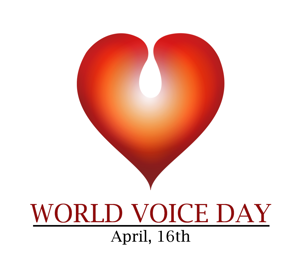The Transient Theory of Human Voice Production with Dr Julian Chen
Sunday 16th April 2023, 5:00 PM - 7:00 PM (London Time)
This event is free-to-attend as part of our World Voice Day celebrations.
In 1957, French physiologist Philippe Fabre invented the electroglottograph, which can accurately determine the closing and opening instants of the glottis in vivo. In 1984, Donald Miller and Harm Schutte further placed two pressure sensors immediately above and below the glottis, measured the air pressures across the glottis.
This experimental evidence enabled a scientific understanding of human voice production.
And so a refined version of the transient theory of human voice production, the timbron theory, initially proposed by Leonhard Euler in 1727, is established. In this lecture, experimental output and the timbron theory of human voice production are presented in an easy to understand graphical format.
Content:
According to that theory, the time between two adjacent glottal closing instants accurately defines the pitch period, and the sound waveform in each pitch period contains full information on the timbre. A method of extracting glottal closing instants from sound waves and a graphical display, the pitch-synchronous spectrogram, are presented.
Among the samples of human voice, the sound recordings of Luciano Pavarotti are analyzed. Some characteristics of the master singer are shown, and hints of how to improve the quality and volume of voice are presented.
Finally, the theory and parametrization method for human voice developed in early 20th century, the source-filter theory and linear prediction coefficients (LPC), are outlined.
Comparing with the more accurate timbron theory and pitch-synchronous parametrization method, the deficiencies of the source-filter theory and the LPC method are discussed.
Dr Julian Chen
Julian Chen received a PhD in Physics from Columbia University in 1985, then joined IBM Research Division as a Research Staff Member...
World Voice Day
World Voice Day takes place on 16th April annually. It is acknowledged across the globe, with the main goal being to increase awareness of voice and voice issues.
Sorry, this is an archived short course...
We have plenty of upcoming short courses coming soon. See details of some of them below or look at the full list of short courses.

Thursday 19th February 2026
1:00 PM - 2:30 PM
Thursday 26th February 2026
1:00 PM - 2:30 PM
(London Time)
Performing Pain: Vocal Health in Emotional Roles!

Louisa Morgan
How connected are acted emotions to our real-life emotions? Are they expressed differently? Do they feel different in the body? This 2-part course with Louisa Morgan looks at the potential impact of acted emotion on vocal health, why we should consider it as voice practitioners, and how to care for our performers needing to work with it.


Tuesday 24th February 2026
5:00 PM - 7:00 PM
(London Time)
Incorporating CBT principles within vocal health and voice care

Dr Luke Aldridge-Waddon
Join Dr Luke Waddon as he introduces the principles and techniques within cognitive-behavioural therapy (CBT) in relation to the voice and voice care. He will discuss psychological factors relevant to the development and maintenance of voice disorders and how these might be approached from a cognitive-behavioural perspective. He will describe theoretical concepts and therapeutic components often used within CBT and consider how these might be applied when working with voice users.


Tuesday 3rd March 2026
5:00 PM - 7:00 PM
(London Time)
Sex differences in VOICE!

Dr Richard Lissemore
This two-hour workshop, led by performer, articulatory phoneticist, and voice physiologist, Dr. Richard Lissemore, will examine in detail the role that biological sex plays in the perception and pedagogy of singing voices. We'll consider how parameters such as anatomy, physiology, articulation, resonance, and radiated acoustics influence the perceptions and pedagogical decision-making of singing teachers.


